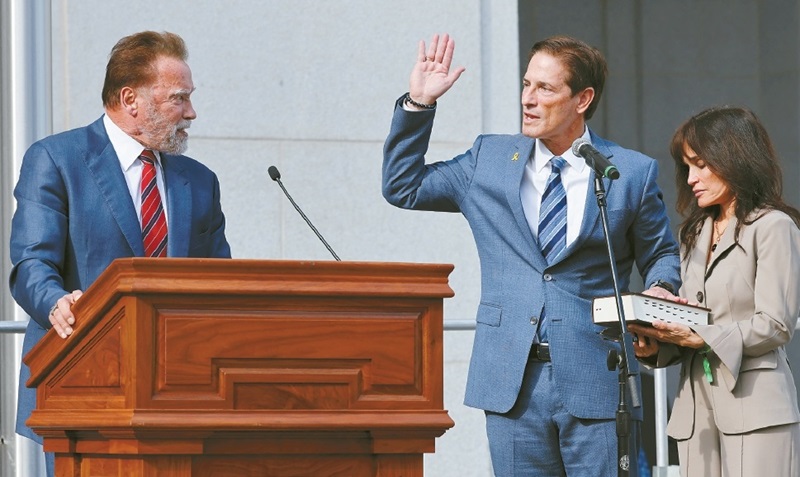The recent decision by newly appointed Los Angeles County District Attorney Nathan Hochman to unilaterally dismiss all DA’s advisory board members, including representatives from minority communities, has sparked significant controversy.
Among those removed were Korean-American advisors such as Esther Lim and Connie Chung Joe and members of other crucial advisory groups representing the Asia-Pacific Islander, Black, Latino, LGBTQ+, women, and faith-based communities. This move has raised concerns about the erosion of an essential communication bridge between the district attorney’s office and the communities it serves.
On December 12, the DA’s office announced that all 50 advisory board members were dismissed as part of an organizational restructuring. While the office stated that former members could reapply to join a newly established board, the sudden and unilateral nature of the decision left many questioning the motives and potential consequences of such sweeping action.
The advisory board’s role has historically been critical in fostering communication between the DA’s office and underrepresented communities. Members have contributed to the prevention of hate crimes and educational initiatives, particularly during the COVID-19 pandemic when anti-Asian hate crimes surged.

The Asia-Pacific Islander advisory group, under the leadership of Esther Lim, spearheaded numerous initiatives to protect vulnerable Asian American communities from hate-fueled violence and discrimination.
Esther Lim criticized the DA’s office for dismissing the advisory board members without prior discussion or explanation. According to Lim, the advisory board sent a formal letter on December 13 highlighting the importance of the board’s work and urging the DA’s office to reconsider its decision. To date, there has been no response.
The advisory board operates on a voluntary, unpaid basis and includes community leaders, educators, and social service advocates. These individuals have dedicated substantial time and effort to ensure that minority voices are heard within the justice system. The sudden dismissal has disrupted numerous pre-planned community initiatives and projects, and many fear that the absence of advisory members will create a vacuum in communication between minority communities and the DA’s office.
Critics argue that Hochman’s actions contradict the promises made during his campaign, which emphasized the importance of inclusion, community engagement, and transparency. The dismissal also stands in stark contrast to the transition between former DA Jackie Lacey and her successor, George Gascón, four years ago. During that transition, most advisory board members were retained, and changes were made through dialogue and consensus rather than abrupt dismissals.
Speculation within the DA’s office suggests that the dismissals may have been politically motivated. Some believe that many of the dismissed advisory members were seen as loyal to Gascón’s administration, leading to concerns that Hochman’s decision aims to consolidate control by eliminating potential dissenting voices.
A senior official from the DA’s office, speaking anonymously, noted that dismissals of department heads and senior managers from Gascón’s era are already underway. “Given that the advisory board members are not paid employees, it’s even easier for the DA to dismiss them without notice,” the source said.
Hochman’s office has not provided clear details on whether it intends to maintain an advisory board or what form it might take. This uncertainty raises the urgent need for a more transparent and accountable approach. The absence of a well-structured advisory board leaves minority communities without a critical channel to voice their concerns and address issues like hate crimes, which remain a pressing matter.
To rebuild trust and ensure equitable representation, the DA’s office must prioritize the re-establishment of the advisory board with input from community leaders.
Dismissing minority voices from the table only deepens distrust and fractures the essential relationships needed to create a fair and just society. The advisory board serves as a vital communication bridge, ensuring that the voices of marginalized communities are not only heard but actively considered in prosecutorial policy and decision-making.
The DA’s office should act swiftly to reappoint advisory board members from diverse communities and engage in transparent dialogue about its restructuring plans. This step is crucial to upholding the principles of inclusion and justice, particularly at a time when hate crimes and social disparities are on the rise. By reinstating and supporting an inclusive advisory board, the DA’s office can demonstrate its commitment to equity, accountability, and the public good.
By Mooyoung Lee lee.mooyoung@koreadaily.com




